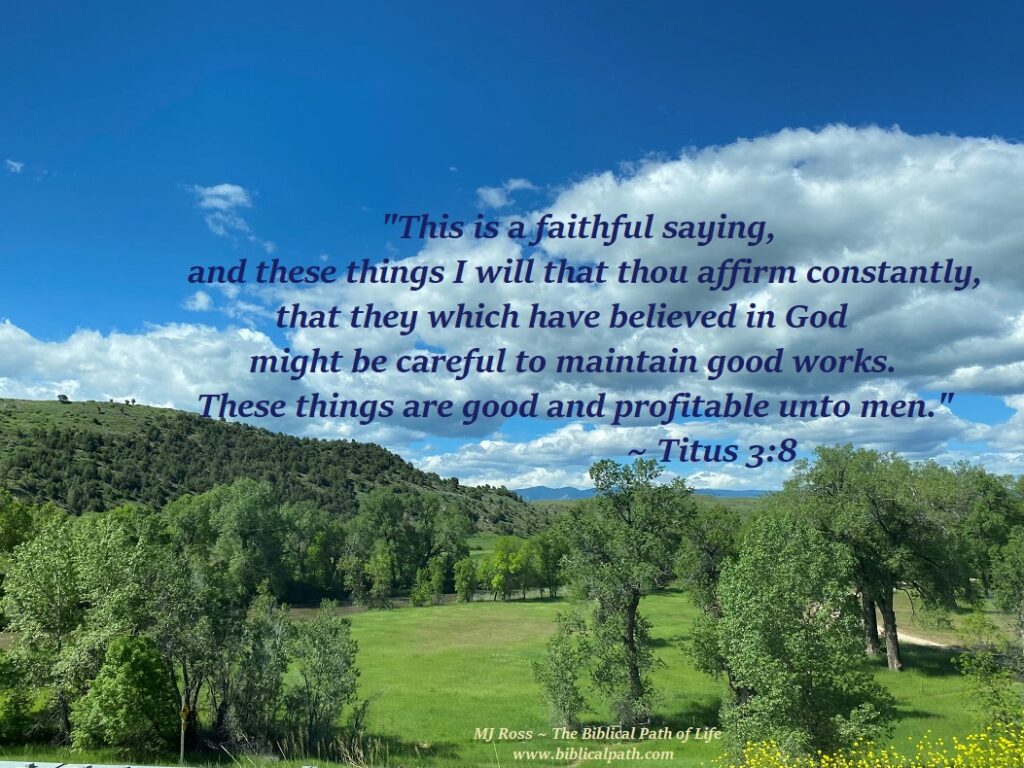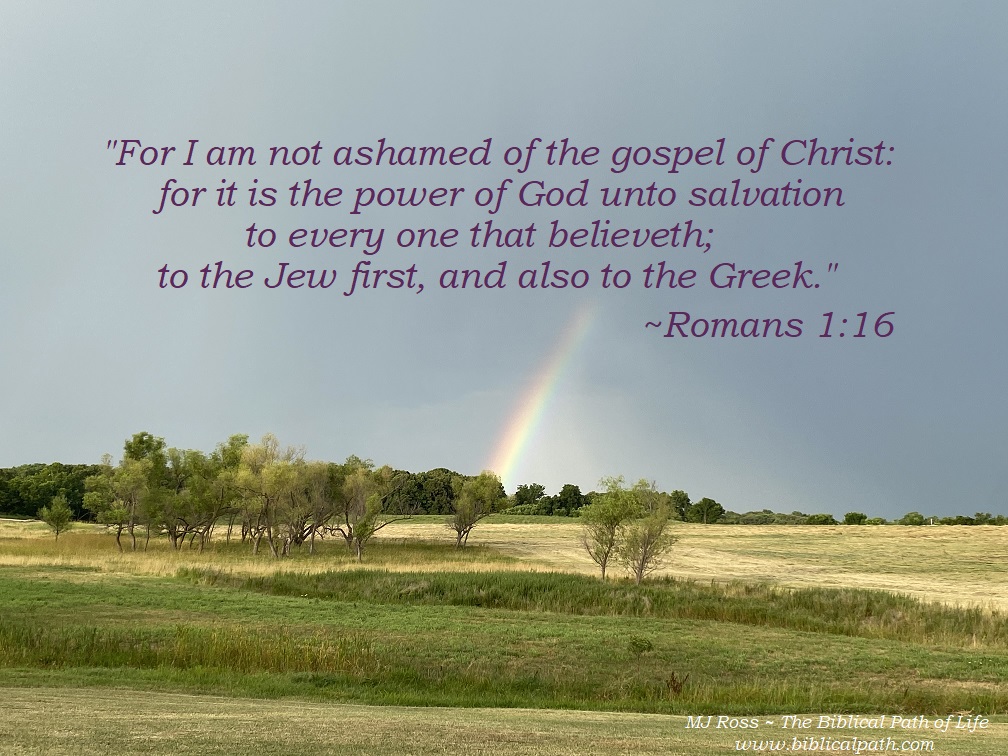
Titus 3:8
Paul won Titus to the Lord. Titus went with Paul on a missionary journey, and he left Titus in Crete to help organize the churches on that island. Paul wrote a letter to help Titus. Paul described the kind of behavior expected of Christians. He encouraged them to remember the importance of knowing that their salvation was a gift of God, and it was not something they could gain by doing works. Christians were to maintain good works, living a right life in Christ. Titus was to teach the basics of Christian living, and to beware of false teachers in the church.
To understand good works, it is important to remember what Jesus taught. “28. Then said they unto him, What shall we do, that we might work the works of God? 29. Jesus answered and said unto them, This is the work of God, that ye believe on him whom he hath sent” (John 6:28-29). The only work one can do to gain salvation is to believe in Jesus, whom God sent. Once Christians understand this, we can begin to understand just what “good works” a Christian is to maintain. Paul explained it well.
Paul began his letter to Titus. “Paul, a servant of God, and an apostle of Jesus Christ, according to the faith of God’s elect, and the acknowledging of the truth which is after godliness” (Titus 1:1).
- According means “… i.e.: the teaching that is directed toward godliness.”
- Faith means “… the means of appropriating what God in Christ has for man that results in the transformation of man’s character and way of life; i.e.: Christian faith, or a firm and confiding belief in Jesus and His Gospel.”
- Elect means “referring to those who are effectively called into salvation.”
- Acknowledging means “the knowledge which very powerfully influences the form of religious life; a knowledge laying claim to personal involvement …”
Paul wanted Titus to understand this teaching of a lifestyle after godliness, which can only come to one who has trusted in Jesus by faith. “8. For by grace are ye saved through faith; and that not of yourselves: it is the gift of God: 9. Not of works, lest any man should boast” (Ephesians 2:8-9). When one has been saved because of this faith in Jesus, it is important to then appropriate that faith by allowing God to transform that life from the inside out: “that results in the transformation of man’s character and way of life.” Remember what Paul wrote in the book of Romans. “And be not conformed to this world: but be ye transformed by the renewing of your mind, that ye may prove what is that good, and acceptable, and perfect, will of God” (Romans 12:2). Paul was encouraging a Believer (Christian) to be changed (transformed), becoming acceptable unto God and His will for that life. That life is now “powerfully influenced” to become more Christ-like (a life after godliness). These good works are not the basis of a Christian’s salvation, but the evidence of one’s salvation.
Paul wrote, not only as a Christian who served God, but also as one whose life had been so influenced by the truth of the Gospel of Jesus that it had changed his life – drastically. “5. Not by works of righteousness which we have done, but according to his mercy he saved us … 7. That being justified by his grace, we should be made heirs according to the hope of eternal life. 8. This is a faithful saying, and these things I will that thou affirm constantly, that they which have believed in God might be careful to maintain good works. These things are good and profitable unto men” (Titus 3:5-8). This is how each Christian is to live. One of the reasons the book of Titus was written was to encourage Christians to live godly lifestyles. It should be the desire of each Christian (as those who are “God’s elect”), to allow one’s faith in Christ to transform completely his or her way of living. It is then that a Christian’s life can be good and profitable, bringing others to Christ.
Paul also gave a warning about the kind of men that were leading the churches in Crete. Titus was to correct them: “15. … unto them that are defiled and unbelieving is nothing pure; but even their mind and conscience is defiled. 16. They profess that they know God; but in works they deny him, being abominable, and disobedient, and unto every good work reprobate” (Titus 1:15-16).
- Pure means “clean or pure in a spiritual sense from the pollution and guilt of sin.”
- Defiled means “to tinge; pollute; defile; to be polluted, corrupt.”
- Unbelieving means “one who disbelieves the gospel of Christ; an unbeliever; an infidel.”
- Abominable means “detestable; that which is an abomination to God.”
- Disobedient means “unwilling to be persuaded; unbelieving.”
- Reprobate means “unapproved; unworthy; spurious; worthless; in a passive sense meaning disapproved, rejected, cast away.”
These claim to know God, but because of their disobedience to God’s Word (unbelief), they are considered “abominable, and disobedient,” and a “reprobate.” This kind of a leader, one who is unwilling to change, will have his “every good work” rejected or cast away. When one is unbelieving (in Christ through faith), and profess to know God, their “works” (lifestyle) reveals the truth. Paul wrote to correct this kind of leadership in the church at Crete.
Do your good works reveal the evidence of your salvation?
Or
Do your works reveal you are a reprobate?








